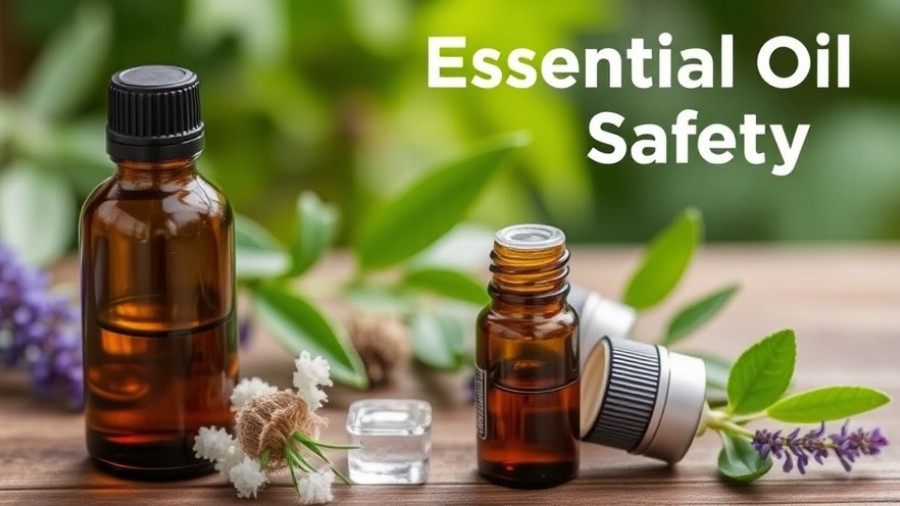
Understanding Essential Oil Safety: What You Need to Know
Essential oils have surged in popularity, celebrated for their aromatic properties and potential wellness benefits. However, caution is paramount. Incorrect usage can lead to adverse effects, and the unregulated nature of essential oils raises important safety concerns. Before incorporating them into your life, it's essential to understand how to use them safely.
Key Factors Impacting Essential Oil Safety
Your safety while using essential oils hinges on numerous factors including your age, existing health conditions, and current medications. High concentrations of essential oils are potent and can cause adverse reactions if misapplied. Common oils like cinnamon, clove, and peppermint require careful dilution before topical application due to their irritant potential.
The Risks of Ingestion: When to Use Caution
Internal use of essential oils is contentious. While certain oils can enhance culinary dishes, overdosing can lead to severe health complications. The FDA does not regulate the ingestion of essential oils, making it crucial to consult healthcare professionals to avoid possible toxicity. Oils like tea tree and eucalyptus are particularly notorious for causing poisoning.
Photosensitivity and Sun Exposure: A Hidden Hazard
Several essential oils, particularly citrus-based ones, can dramatically increase your skin's sensitivity to sunlight. Known as phototoxicity, applying these oils before sun exposure can lead to serious burns. It's essential to wait at least 24 hours after using these oils before sun exposure to safeguard your skin.
Best Practices for Safe Application
To mitigate the risks associated with essential oils, follow established guidelines. Always dilute essential oils appropriately with carrier oils. Conduct a patch test to ensure there are no allergic reactions. For topical applications, a dilution of 1% is often recommended for most adults, especially concerning potent oils like thyme and oregano.
Using Essential Oils for Children and Pets: Exercise Extra Care
Infants and young children are particularly vulnerable to the effects of essential oils. Always avoid using certain oils on children under two years old, and consult a healthcare professional about which oils may be safe. Likewise, remember that some oils harmful to pets, especially cats, should never be diffused or applied in their presence.
Conclusion: Educate Yourself and Stay Safe
Essential oils can provide remarkable benefits, but they aren't without their risks. Armed with knowledge and proper safety practices, you can enjoy their benefits while minimizing potential downsides. Whether for relaxation, aromatherapy, or wellness, being proactive about safety is key.
If you're interested in exploring the world of essential oils further, consider taking a course on aromatherapy to deepen your knowledge. Your safety and well-being should always come first.
 Add Row
Add Row  Add
Add 




Write A Comment